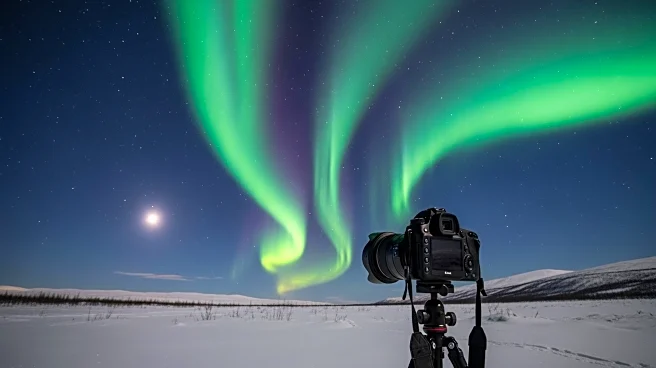Rapid Read • 7 min read
A new study published in Geophysical Research Letters has found that glaciers in the US, Canada, and Europe are melting at an unprecedented rate due to climate change. Between 2021 and 2024, glaciers in regions such as Washington, Montana, British Columbia, Alberta, and the Swiss Alps lost twice as much ice as in the previous decade. The study attributes this accelerated melt to extreme heat and low snowfall, with glaciers shrinking by up to 13%. In the US and Canada, glaciers lost an average of 24.5 billion metric tons of ice annually, while Swiss Alps glaciers lost 1.7 billion metric tons per year. This rapid ice loss contributes significantly to sea level rise and poses threats to freshwater availability and mountain landscapes.
AD
The accelerated melting of glaciers has serious implications for global sea levels, freshwater resources, and ecological stability. As glaciers shrink, they contribute to rising sea levels, which can lead to coastal erosion and increased flooding risks. Additionally, the loss of glacial meltwater threatens water supplies for communities, agriculture, and industries that rely on these resources. The study highlights the urgent need for climate action to mitigate these impacts and protect vulnerable regions from further environmental degradation.
The study also points to the broader environmental consequences of glacier melt, including increased geological hazards and changes in mountain ecosystems. The loss of glaciers can lead to more frequent landslides and avalanches, posing risks to human safety and infrastructure. Furthermore, the transformation of mountain landscapes can affect biodiversity and alter habitats for various species. These changes underscore the interconnectedness of climate impacts and the need for comprehensive strategies to address them.
AD
More Stories You Might Enjoy











